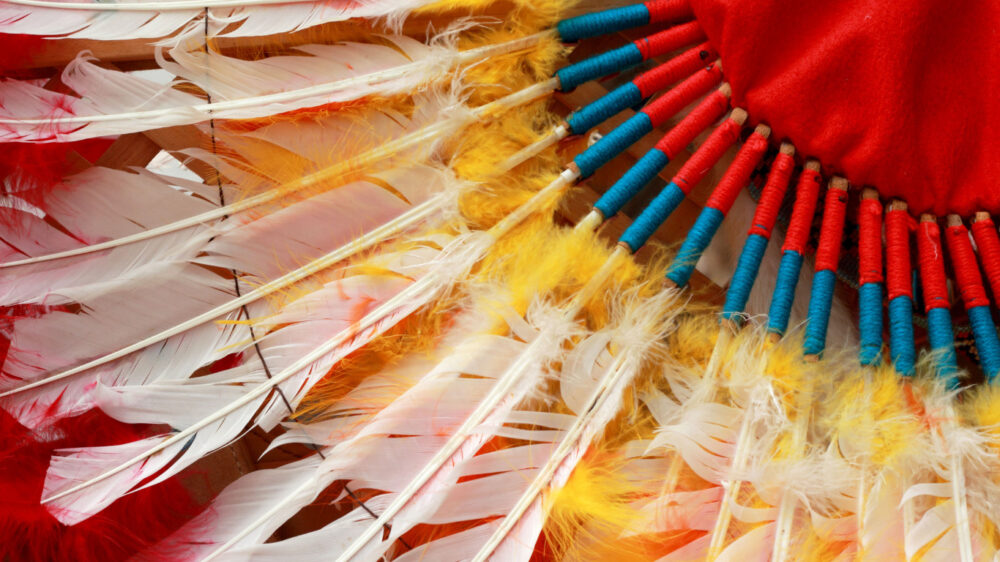

Federal Funding Opportunities for Native American Indian Tribes
The government provides many different programs to give federal funds to tribes. These funds play a vital role in ensuring the preservation of tribal sovereignty, promoting economic development, and improving the overall well-being of communities.
mctlaw actively reviews government databases in search of new funding opportunities for our clients. Our attorneys have decades of experience working closely with tribes as inside and outside counsel, and have helped many tribes secure funding they were otherwise unaware of.
Federal funding for Tribes has numerous benefits that help make a positive impact on communities across the country in several different ways. The availability of these funds may vary over time, so it’s important to consult with an attorney experienced securing federal grant funding.
Economic Development for Tribes
Federal funding promotes economic development within the tribal community. Historically marginalized, tribes face significant challenges in accessing capital and resources necessary for economic development. Federal funding and grants help to offset this through financial support for infrastructure improvement, housing, entrepreneurship, and job creation.

Talk to Our Indian Law Attorneys About Your Tribe’s Legal Needs at No Cost
Funding for Tribal Infrastructure
These funds help Tribes preserve sovereignty by receiving money they can use to invest in the development of their judicial systems, education, healthcare, infrastructure, and natural resource management, among other essential services. These initiatives help strengthen tribal governments, promote decision-making autonomy, and preserve their rich heritage for future generations.
Funding for Tribal Healthcare and Education Support
Federal funds support efforts to improve Indian healthcare and educational opportunities for tribes. The Indian Health Service (IHS) receives federal appropriations to support comprehensive medical services, health infrastructure, and disease prevention programs. Similarly, the Bureau of Indian Education (BIE) uses federal funds to enhance educational opportunities in tribal schools, promote cultural preservation, and empower students to thrive academically.
Funding for Tribal Environmental and Natural Resource Protection
Managing natural resources is an important component of protecting tribal interests, and federal funding supports this as well. Through federal grants, tribes can engage in sustainable environmental practices, conservation initiatives, and renewable energy projects. These investments allow tribes to protect their lands, preserve traditional ways of life, and contribute to a greener, more sustainable future.
Types of Federal Funding for Indian Tribes
Indian Housing Block Grant (IHBG) Program
Administered by the Department of Housing and Urban Development (HUD), the IHBG program provides grants to tribes for affordable housing activities. Tribes can use the funding for new housing construction, housing rehabilitation, housing management services, and supportive housing for vulnerable populations.
Community Development Block Grants (CDBG)
The CDBG program, administered by HUD, provides grants to state and local governments, including tribes, to support a wide range of community development activities. Tribes can use CDBG funds for affordable housing initiatives, infrastructure development, economic development projects, and public facilities improvements.
Tribal Energy Program
The Department of Energy (DOE) offers funding opportunities for tribes to support renewable energy and energy efficiency projects. This funding assists tribes in developing clean energy resources, reducing energy costs, and promoting sustainable practices.
Grants from Specific Federal Agencies like the DOJ and USDA
Various federal agencies offer grants specific to tribal communities. For example, the Department of Justice (DOJ) provides grants to support tribal justice systems, law enforcement, and victim services.
The Department of Agriculture (USDA) offers funding for agricultural programs and rural development projects on tribal lands.
Our team of experienced Indian Law attorneys can help with matters like:
- Tribal Governance and Regulations
- Treaty Rights for Indian Tribes
- Natural Resource Management for Tribal Lands
- Cannabis and Hemp Production and Sales for Indian Tribes
- Environmental Protection and Cleanup on Tribal Lands to Protect Sacred Sites
- Resolving Tribal Enrollment and Disenrollment Disputes
- Tribal Housing Programs and Funding
- Tribal Healthcare and Strengthening Government Partnerships
- Doing Business in Indian Country
- Indian Child Welfare Protections
- Indian Gaming Compact Lawyers
- Breach of Trust for Tribes in the US Court of Federal Claims
- Federal Funding Opportunities for Tribes
- Tribal Fee to Trust Land Acquisition for Casino Gaming
- Gaining Federal Recognition for Native American Indian Tribes
- Misuse of Railway Easements on Indian Tribal Lands
- Federal Takings Claims on Native American Indian Reservations
- Land Allotments
- Wind Energy Ventures
- Native American Tribes and Employment Law
Content Reviewed by Kehl Van Winkle – Indian Law

Kehl Van Winkle is an attorney at mctlaw based in the Seattle, WA office. His legal practice focuses on Indian Law. Mr. Van Winkle earned his Juris Doctor degree from Lewis & Clark Law School in Portland, Oregon. Mr. Van Winkle worked as an in-house attorney for the Sauk-Suiattle Indian Tribe where he represented the Tribe in a variety of economic development projects, including the opening of a casino and a marijuana dispensary. He also represented the Tribe in State and Tribal Court on Indian Child Welfare Act cases and served as the prosecuting attorney for the Tribe in Tribal Court.
This page was last updated:


Contact Us Now

As an experienced leader in these types of lawsuits, we were confident the firm would have the expertise. However, what surprised us most was the high level of excellent customer service from the firm’s staff!
Pat R.
I can’t recommend this firm enough. They have an outstanding team that truly care for their clients…I have been awarded a fair six figure settlement.
Nate M.
When I say “they went to bat” for me…this Law Firm literally did just that. They persevered to bring the hard-nosed Manufacturer to settle and provide me some recompense for everything I had to endure which led to this suit.
Me’Chelle